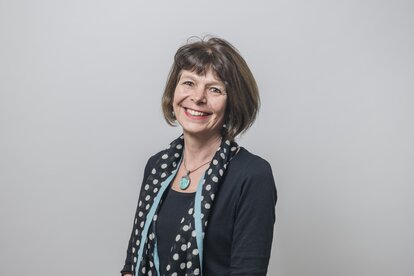If anything is heard of Nepal in the international news at the moment, it is not of those whose lives were overturned by the April and May earthquakes, but of riots associated with the announcement of the new constitution. In the populous Terai region, there is anger and fear that the new constitution will give inadequate power to the peoples of the plains. Meanwhile, staunch Hindus also fear an erosion of their faith. Meeting all the hopes and demands of Nepal’s diverse peoples is a huge challenge; it is unsurprising that the new constitution has taken so long in its drafting.
For the residents of Sindhu Palchowk and other areas heavily affected by the earthquake, the new constitution is a less pressing matter than the worries of daily life. Our staff have been collecting the accounts of some of the people in Melamchi valley, where Helvetas emergency relief and recovery efforts were focused. These highlight how important it has been to support those who were already amongst the poorest and most socially marginalised – especially women. Two examples follow, as collected by Sushil Bhandari and Hari Gurung.
Chinimaya Nepali belongs to the Dalit or so-called “low” caste community. A grandmother of 60, she has experienced many setbacks in life – the earthquake being the latest. Chinimaya and her husband own 0.2 hectares of rain-fed land, which is enough to feed the current family members for 3 months of the year. Her husband is a cripple, paralysed since 2013, whilst her teenage son died suddenly whilst working as a labourer in Kathmandu. Her son-in-law also died, resulting in her daughter and four grand-daughters moving back to the natal home. (A wife whose husband dies is often rejected by her in-laws, whilst daughters tend to be viewed as a financial liability given the continued, though illegal, practice of dowry).
When the earth shook on 25 April, Chinimaya, her daughter and grand-daughters (pictured above) were all at work outdoors. Her husband, however, was inside their small house. It was reduced to rubble, with him, still alive, inside it. Neighbours were eventually able to assist the family in rescuing him. Unable to feed himself, he survives through Chinamaya’s care.
In the immediate aftermath of the earthquake, the family were given shelter in a butcher’s shop. They then received a tarpaulin through our emergency distributions, and were able to construct a shelter of sorts. Subsequently, they have recovered some materials from their former house and made a better temporary shelter, with tarpaulins sealing the roof and sides. With the monsoon rains falling outside, a few tarpaulins can make a big difference in fashioning a habitable living space.
Laxmi Lamichhane’s life before the earthquake was also not an easy one, although she belongs to the so-called “highest” caste. In rural Nepal it is not uncommon, though technically illegal, for men to take a second wife,especially if the first wife produces no sons. This was the position of Laxmi, whose elder sister is the first wife. Yet after her marriage, Laxmi gave birth to a girl – whilst her sister gave birth to the longed-for son. This rendered Laxmi’s position in the family very precarious, and eventually she separated with her two-year old daughter. Unlike most women in her situation, however, she fought a legal battle with her in-laws, and was finally able to secure the registration of a small amount of land in her name. This is enough to feed her and her daughter for about half the year; for the rest, she and her daughter (now aged 16) earn their food through agricultural labour – although Laxmi is careful that her daughter still attends school. This was before the earthquake. When it hit, it destroyed the small home that mother and daughter shared, and also killed Laxmi’s husband.
Now a widow, Laxmi’s social position is even more difficult. However, she and her daughter were considered a priority for emergency support, and have now – with the eventual support of neighbours – managed to construct an adequate temporary shelter, sealed with tarpaulins.
Both Laxmi and Chinimaya worry about how they will ever manage to construct a proper home for themselves and their families. Yet both are survivors in every sense, demonstrating the will to go on fighting the major adversities that, as women, they have had to face.


